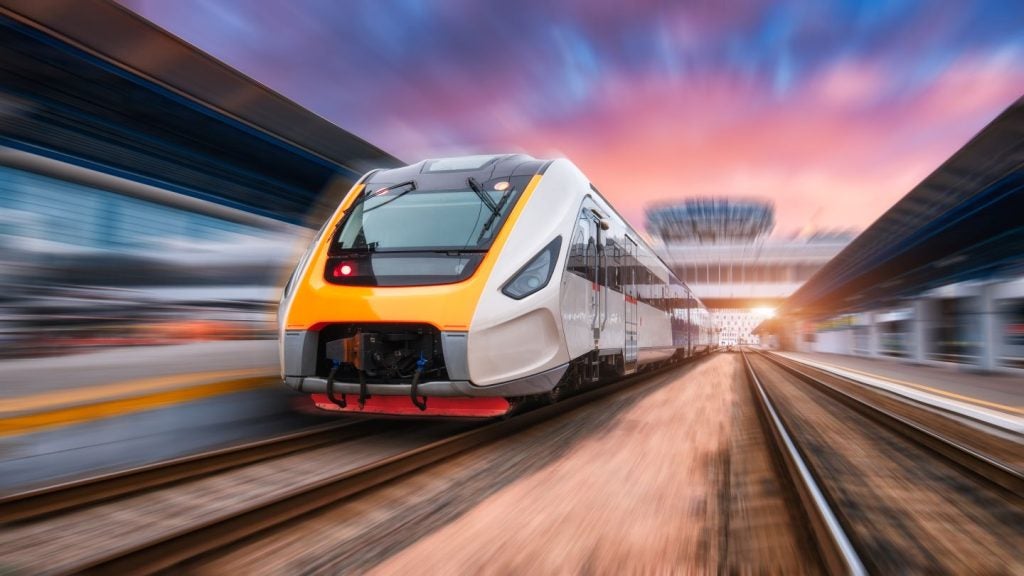
In December 2009, a new Regulation on Rail Passengers’ Rights and Obligations came into effect, with the view of establishing a safe environment for both passengers and rail operators alike, particularly in times of travel disruption.
While some laws are being followed across the board – for example, equal rights of access and protection for passengers with disabilities and reduced mobility – a new report published on 11 March 2015 by the European Commission found that only four Member States have applied the regulation in full on their railways, while 22 have granted exemptions to varying degrees.
The report raised serious concerns about “an uneven level of legal protection for both passengers and the rail industry” and concluded that “a high level of protection for passengers in the EU is not yet a reality”.
The findings also drew harsh criticism from Violeta Bulc, Commissioner for Transport, who defined the protection of passengers as “a cornerstone of European transport”, and feared that the high number of exemptions risk turning the legislation into “an empty shell”.
Passengers’ rights undermined by the exemptions
Among its most significant requirements, the rules hold rail operators liable for delays, missed connections and journey cancellations. Under its guidelines, rail companies must offer re-imbursement of the ticket price, as well as ensure accurate information, accommodation and refreshments in the case of any major disruption to the passengers’ comfort. Furthermore, the regulation offers a template for payments in case of injury or death of a passenger.
However, the vast majority of countries opted out of offering either some or all of these services. Article 2 of the regulation offers a window for countries to exempt their domestic, urban, suburban and regional rail services from these obligations, as well as any cross-border, international railways. An exemption can last up to five years, and states can apply for two consecutive renewals – allowing a country to avoid these clauses for up to 15 years in total. This means that, in theory, a level playing field for EU rail passenger rights could be enacted as late as 2025.
How well do you really know your competitors?
Access the most comprehensive Company Profiles on the market, powered by GlobalData. Save hours of research. Gain competitive edge.

Thank you!
Your download email will arrive shortly
Not ready to buy yet? Download a free sample
We are confident about the unique quality of our Company Profiles. However, we want you to make the most beneficial decision for your business, so we offer a free sample that you can download by submitting the below form
By GlobalDataAccording to the Commission report, Denmark, Italy, the Netherlands and Slovenia are the only states currently applying the regulation in full on their railways, while Bulgaria, France, Ireland, Latvia and Romania have adopted the full permissible exceptions. The UK exempts itself only from a handful of requirements on all its national passenger services.
High customer costs risk damaging rail travel’s value proposition as an alternative to the road.
Rian van der Borgt is a board member of the European Passengers’ Federation (EPF), which he co-founded over ten years ago. Since then, he has been closely following the implementation of passenger rights on Europe’s railways.
“EPF is of the opinion that far too little progress is made with lifting the exemptions,” he says. “Passengers’ rights should be a clear and simple system and that is undermined with the exemptions. All EU member states should work towards lifting them but very few seem to do anything.”
“A number of countries have even opted for exempting as many articles of the regulation as possible, as if they don’t want any interference from the EU, or as if they have been put under pressure by their national rail operators. Operators usually want as little interference as possible,” van der Borgt says.
“Some other countries say they have a similar passengers’ rights system and therefore don’t need the EU regulation. That is misleading though, because the regulation only sets a minimum. If an existing system for passengers’ rights were equivalent to or better than the minimum in the EU regulation, then there wouldn’t be a need to make use of exemptions.”
Cost of implementation: a key factor in avoiding regulation
When the regulation was originally rolled out, exemptions were set in order to enable an easier, more gradual implementation throughout all European countries. Because countries are not required to provide any explanations when exempting themselves, there is little empirical evidence in regard to each country’s individual reasons to apply for them.
An evaluation report compiled for the European Commission in 2012 speculated that the reasons were financial. The report, which back then estimated 37% of rail services to have the maximum possible exemptions and a further 27% having partial ones, cited the “cost of implementation” as one of the key factors for shirking regulation.
Indeed, the most popular exemptions were the same back in 2012 as they are today: provision of assistance, re-imbursement and hotel accommodation offered to stranded passengers.
“If rail companies are held liable and have to be compensated in return by the state and from tax payers’ money, then, at a state level, it can be easier to exempt that, which is understandable,” says Libor Lochman, executive director of the Community of European Railway (CER).
“We have of course countries which have intentionally exempted some rail services from the regulation but for the reasons which are quite understandable,” he says.
“We have to realise that the states [applying for exemptions] do not simply hate their customers, but they have to realistically assess what is possible and the consequences of offering the full extent of the passenger rights, since they themselves cannot guarantee high quality and reliability of the infrastructure, or, in certain cases, the capacity of the vehicles.
“In the countries that are slow with upgrades on their networks and their rolling stock, you can realistically expect exemptions up until December 2024. There is nothing to hide.
“You have to be realistic about what can be accommodated into the rail system. Our approach, in the first place, is how to bring the customers to the destination in a safe and reliable way, and not to make customers believe this is a golden mine.”
What is being done?
Overall, the regulation has had a positive impact in raising the standard of passengers’ rights across Europe’s network, due to its many mandatory requirements applied by all operators.
“In accordance with the European Commission implementation report, railways delivered good results, in particular for the passengers requiring the assistance, passengers with reduced mobility and disabled persons and also in the area of the compensation, rerouting and refunds,” says Lochman.
Sexual harassment and intimidation of women is a hidden problem on public transport.
“So we are really performing well, we are performing as expected. But I do expect that there will be more and more countries that will be thinking of pushing for better comfort of their customers and for the facilitation of their infrastructure, in order to avoid the situation of another ten years of exemptions.”
In the UK for example, the Department for Transport (DfT) stated its intentions to use the next five years to prepare a clear action plan. Two months prior to the renewal of exemptions in December 2014, DfT and Transport Minister Claire Perry announced a consultation into key areas where the UK rail industry can make progress and implement the regulation before 2024.
“It’s important to see what steps have been made towards the implementation,” says Mike Hewitson, head of policy at independent watchdog Transport Focus. “We are using this five-year block in a way to set the groundworks, set foundations to implementing them. They are proposing a whole series of actions so at least from a Great Britain perspective you can see progress towards implementation.”
However, awareness of rights among passengers is still a key issue. In the UK, research published in 2013 by Transport Focus showed that three quarters of those eligible for reimbursement were unaware they could claim compensation.
That year, the European Union launched a two-year-long campaign to address the issue. The campaign used informational posters and even a smartphone app to educate all transport users about their rights to claim compensation or refunds and ask for assistance when travel is disrupted.
But despite the effort, little progress seems to have been made.
More recent findings published by the Office for Rail Regulation (ORR) in February 2014 pointed towards the same issue: over 75% of rail passengers in the UK ‘do not know very much’ or ‘nothing at all’ about their rights to a refund or compensation when trains are delayed or cancelled, the report concluded.
“What we’ve always found in connection with awareness of rights is that there is a very low awareness of rights to start with. And probably the best example is the awareness of the ability to claim compensation if you’re late. I certainly think there is a need for a separate document to translate the law into passenger language or ‘passenger speak’,” Hewitson says.
“So you could say there’s an uneven patchwork of rights and ask the question – does that matter, if most people don’t know they’ve got any in the first place?
“You could have the most perfect system for passenger rights, if no-one knows how to use them, then it sort of begs the question – how many passengers is it helping? So the push is to raise awareness to start with and then you can harmonize.
“It’s more about communicating passenger rights to people, making it clear that you do have rights, making it easier for people [to] claim. It doesn’t have to be the European Passenger Regulation that does that, but the European one does provide a ready-made frame upon which to do it.”





